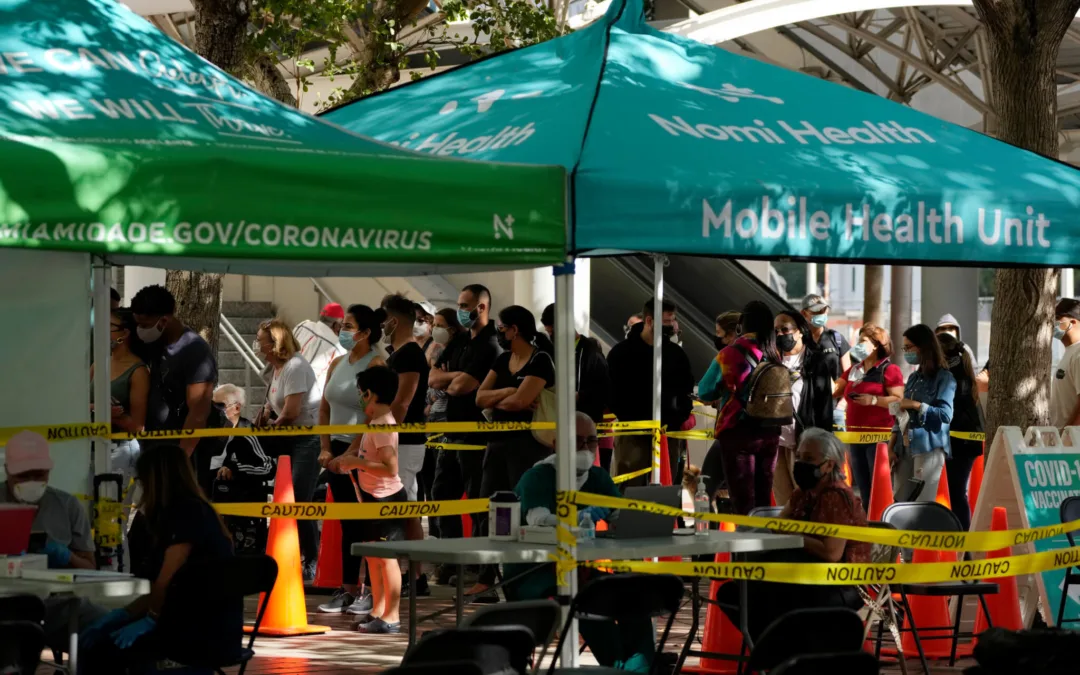
Image via Shutterstock
COVID-19 is forcing colleges to adapt, but minority students may be left behind with limited access to school counselors and information.
The impact of COVID-19 in U.S. higher education started with the early March rumble of colleges closing to avoid the spread of the virus, but it has since evolved into an avalanche that has the potential to change everything from admissions to the college experience.
For high school juniors, the first big shift was the cancellation of the spring SAT and ACT administrations, a traditional time to take their best shot at a score that can both get them into college and qualify for scholarships. By March 31, the University of California system, which enrolls over 226,000 undergraduates (25% of them Hispanic), sent shock waves when they announced that they would not require SAT or ACT scores and would accept pass/fail marks in high school transcripts for the class of 2021. Preceding this announcement, other institutions had already moved to 1 to 3-year pilots of test-optional admissions. In the case of the state of Oregon, all public higher education institutions jointly announced they were permanently moving to test-optional admissions. While some institutions are making this move to minimize near-term COVID-19 related impacts, others are doing it out of a conviction that these tests add little value and that giving students the opportunity to apply for college without test scores is supporting their diversity efforts while maintaining quality and graduation rates.
RELATED: College-Bound In The Time Of Coronavirus: Here’s What Class 2020 Can Do To Succeed
The COVID-19 driven changes to college admissions are coming fast and late in the cycle, increasing the risk of underrepresented students being left out of the loop. Information and guidance that usually flow from school counselors to students may be harder to share with school closures. This information and access barriers are worse for low-income and students of color. In Florida, where 32% of the K-12 students are Hispanic, there are 1.9 school counselors, psychologists, and social workers for every 1,000 students, compared to the 3.6 national average. In counties that serve predominantly Hispanic students, it can be worse. Take, for instance, Dade County School District where 69% of the K-12 students are Hispanic, but there are only 1.6 such education professionals for every 1,000 students.
RELATED: Facts vs. Feelings: Understanding Science And Math Is A Matter Of Life Or Death
For students aspiring to go to college, trying to keep up with changes to the college admissions process and criteria and having limited access to support such as school counselors, here are 3 near-term steps to keep you on your path to college:
- Take care of yourself, there is time. The COVID-19 pandemic is impacting all of our lives in drastic and personal ways, and we have yet to see the full impact, including likely continued changes and announcements by colleges and universities. There is still time to fully focus on the college search and application process later in the summer and fall. You will do your best work if you are well mentally and physically.
- Practice your writing. With or without test scores, college admissions staff will look at other pieces of information to make decisions, including your grades, the rigor of the classes you have taken, letters of recommendation, and essays. If you feel ready to keep working toward your college application, focus on the pieces that will most certainly be included, especially writing. If you would like to write about your experience during the COVID-19 pandemic, it would be a good idea to keep a journal to reference later on.
- Challenge your mind. Rigorous academic work does prepare you for college. When you have a choice, pick the harder book to read, the challenging documentary to watch, the complex exercise to solve. If you are the kind of student that does really well in tests, then plan to take a college admissions test in late summer or fall, checking if you qualify for an SAT or ACT fee waiver. To prepare at home, keep practicing with the free resources available through their websites.
Politics

Teamsters and UPS Reach Tentative Deal to Avoid Strike, 340,000 Workers to Get Raises
The tentative deal represents a huge win for full- and part-time UPS Teamster workers, who would get significant pay raises and better working...



One Republican Senator Is Blocking 265 Military Promotions, Leaving the Marines Without a Confirmed Leader
Sen. Tommy Tuberville's decision means these military officers are not getting the pay raises they’re owed, cannot move their families to wherever...
Local News



Teamsters and UPS Reach Tentative Deal to Avoid Strike, 340,000 Workers to Get Raises
The tentative deal represents a huge win for full- and part-time UPS Teamster workers, who would get significant pay raises and better working...



One Republican Senator Is Blocking 265 Military Promotions, Leaving the Marines Without a Confirmed Leader
Sen. Tommy Tuberville's decision means these military officers are not getting the pay raises they’re owed, cannot move their families to wherever...




